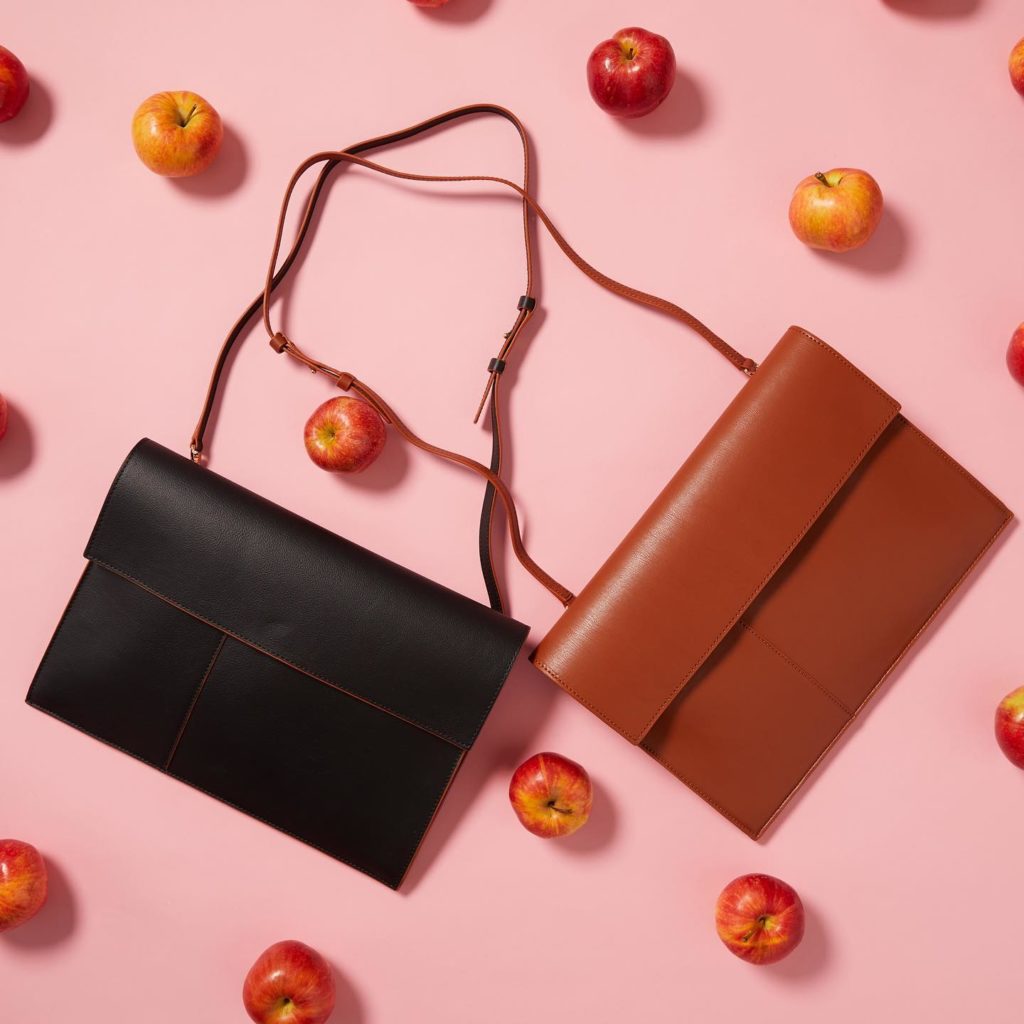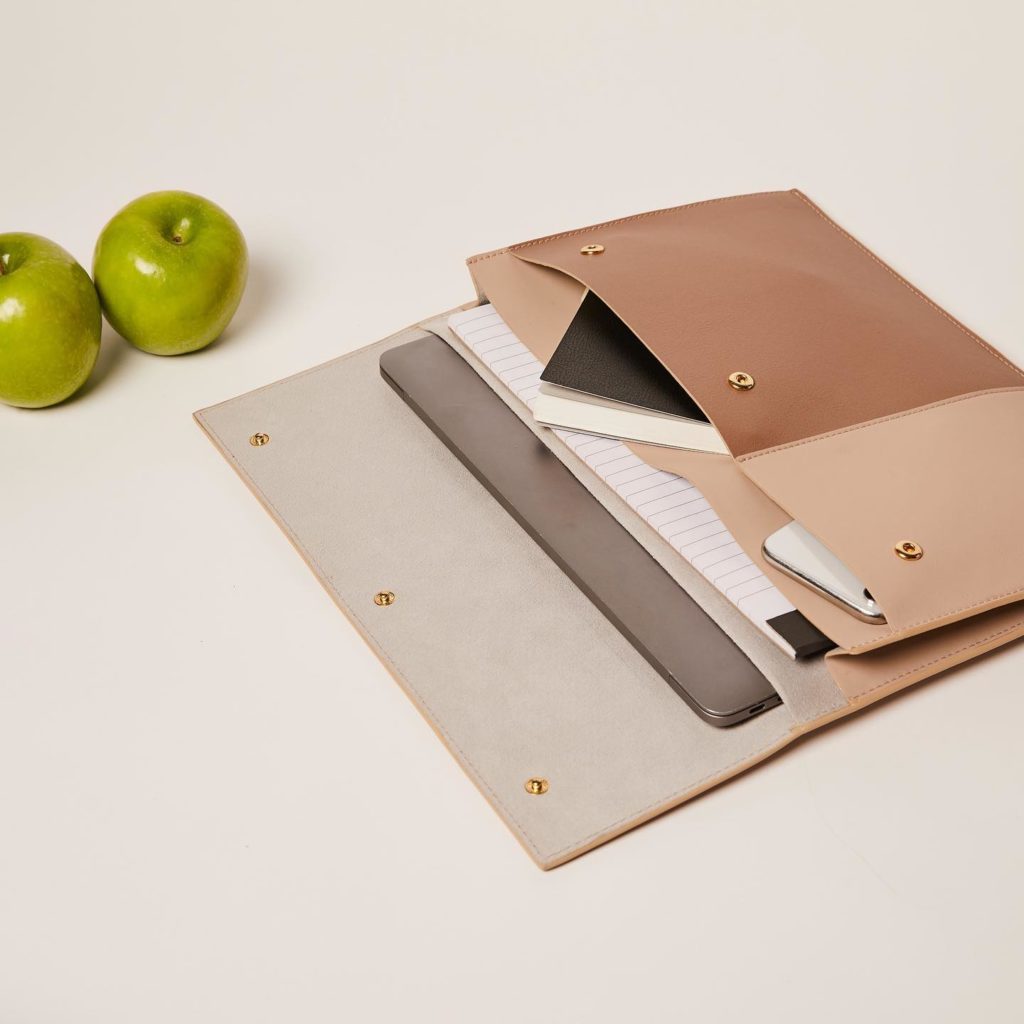Co-founders Heather Jiang and Jen You are changing the fashion industry by introducing their eco-friendly accessory brand, Allégorie.
The women-led team found a sustainable way to recycle unused fruits, turning them into stylish accessories such as backpacks, wallets, handbags, and travel accessories.
The Allégorie founders receive their fruit leather from countries such as Japan, Italy, the Netherlands, and Taiwan.
They also work to ensure the supply chain process is transparent and ethical by visiting the facilities themselves and speaking to the people collecting the fruits.
“This is a growing community, so we are dependent on each other and trust each other to make it work for everyone,” Jiang says.
To take the eco-friendly angle one step further, the lining inside Allégorie bags are made with a combination of plant-based polymer materials and recycled polyester fibers.

From Unwanted Fruits to Your Wardrobe Essentials
By upcycling discarded fruits from grocery stores and juice factories, each bag at Allégorie helps reduce food waste.
So yes, when they say their bags are made from apples, it’s not greenwashing.
For example, each of the Gala Backpacks upcycles about 550 apples, with bio content constituting approximately 80% of the bag.
Beyond Recycled Fruits
In addition to upcycled food waste, the brand utilizes various plant-based and recycled materials, including non-edible crops and post-consumer recycled plastics, to minimize the impact on the environment and animals.
Unlike most vegan leathers, their materials are 100% PVC free. Discover here how traditional “vegan leather” may not be as good as it sounds.
Their production partners share the vision and follow strict guidelines to reduce their impact on the environment, including zero emissions of hazardous chemicals, utilizing green energy, and netting zero on water usage.
Below is an interview with the Co-founder of Allégorie, Heather Jiang.
Q: What is the mission and vision of Allégorie?
A: By transforming excess food produce into high-quality, everyday accessories, Allégorie pushes the boundary of sustainable fashion by utilizing innovative materials. We are on a mission to do better by the planet and the people who live on it.
Q: How did both of you come up with this fascinating concept? Was there an ah-ha moment that sparked the inspiration?
A: We were very disappointed by traditional vegan leather, aka PVC, and were looking for an actual sustainable and cruelty-free alternative.
We were very lucky to have met incredible people and communities in our process of searching for plant-based solutions. It was a group effort that we managed to bring the rough ideas into a sustainable business.
Q: How does the production work? How can old fruit become a fashion material?

A: It’s all about the power of plant fiber. Some of the strongest materials that many cultures have used for centuries, such as jute and canvas, are plant-based.
Similarly, the process of upcycling food waste, like apple pulp from juice factories, offers the opportunity to harvest the plant fibers and turn them into something strong and beautiful.
Q: What were some of the facts and statistics about food waste that really blew your mind?
A: Honestly, everything:
- Globally, we waste about 1.4 billion tons of food every year. If food waste were a country, it would be the 3rd highest emitter of greenhouse gas
- The US discards more food than any other country in the world: nearly 40 million tons — 80 billion pounds — every year, approximately 30-40% of the entire US food supply. That’s 219lbs of waste per person
- Food is the single largest component taking up space inside US landfills, making up 22% of municipal solid waste (MSW)
- It is estimated that 3.7 trillion apples are thrown away each year. That’s almost 50 apples per person
Q: What are your goals and plans for the next 1-3 years, and what do you hope to achieve?
A: Sustainability is a process, always. We look forward to constantly improving the materials, the process, and our business model to do better for the planet and the people.







